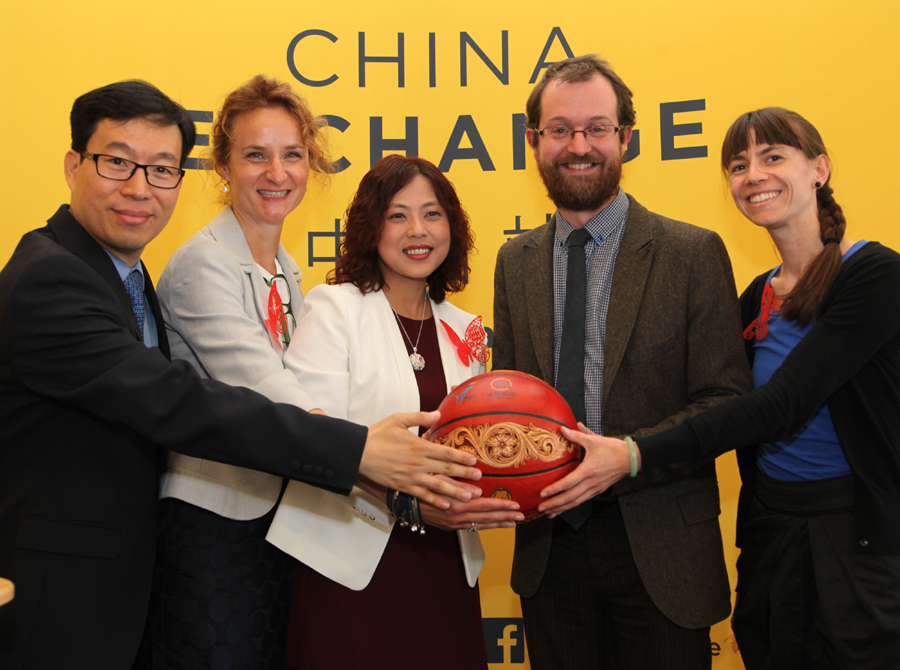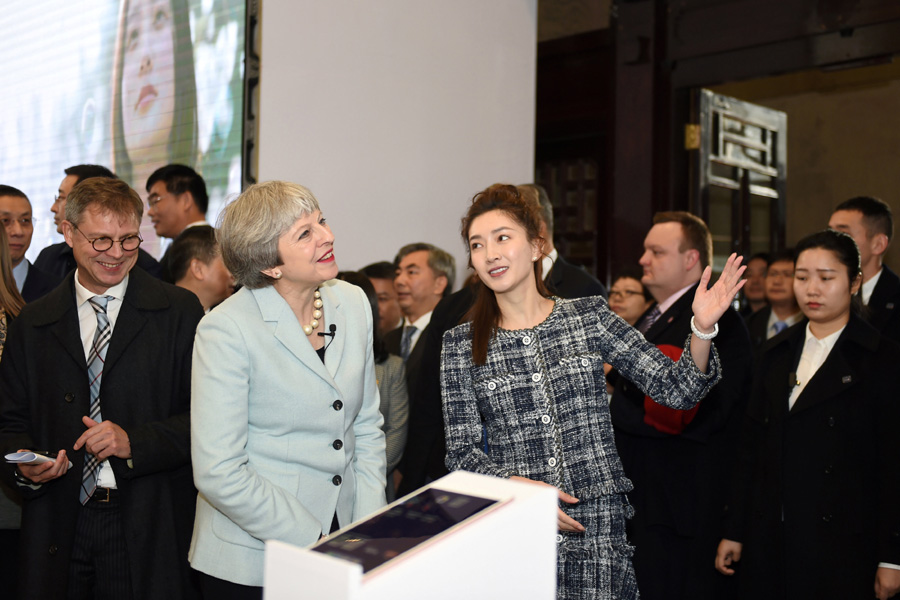Connecting U.K. and China through Culture
By CARMA ELLIOT
ON her first bilateral visit to China since taking office in 2016, Prime Minister Theresa May was accompanied by a delegation of 50 business and institutional leaders, representing the U.K.’s interest in a strong, broad, and deep relationship with China. Having reached agreements worth billions to the U.K. economy, these companies will be working to deliver prosperity and jobs for both countries.
What underlies these agreements, and what will ensure their successful delivery, is a relationship defined by more than just individual gains – a relationship defined by a firm foundation of trust and mutual understanding, supporting and driving a long-lasting partnership of collaboration and shared benefit. That’s why the Prime Minister’s visit was shaped not solely by commercial targets, but also by aspirations to nurture and grow a strong people-to-people relationship.

On August 17 2017, “China Time Memory Exhibition in Britain” is convened in London’s China Town. The Chinese sponsor gives an intangible cultural heritage “leather carved basketball” as a gift to the British Heritage Crafts Association.
With this in mind, the Prime Minister’s busy program included a number of events which threw a spotlight on people links, and a shared interest in connecting our young people, and connecting the next generation.
During the Prime Minister’s first stop in Wuhan, the British Council launched the “English is GREAT”campaign, a year-long program of events to support learners who wish to improve their proficiency and enjoyment of the language – whether for personal, professional, or simply fun reasons. Every day, English enables millions of people all over the world to engage with each other, from casual conversations, to cutting-edge research, and to develop and complete trade deals. It is truly a global language.
Engagement which goes both ways ensures greater trust and builds mutual understanding. Efforts to support more school students in the U.K. in learning Chinese, such as the Department for Education’s “Mandarin Excellence Programme,” are progressing well with their ambitions to see more British nationals develop a greater command of the Chinese language.
Education is a powerful link between our countries. In 2016, nearly 157,000 students from China were enrolled in the U.K.’s schools, colleges and universities. A further 65,000 students were working towards U.K. qualifications in China, made possible by the more than 275 transnational education programs between the U.K. and China.
Since 1978, an estimated 600,000 Chinese students have benefitted from a U.K. education, forming a strong community of diverse and talented alumni who connect both countries. Based on their heightened understanding of both the U.K. and China, in addition to their cross-cultural experience, they are well placed to take forward the bilateral relationship.

So it was a timely initiative when, during the Prime Minister’s visit, the British Council launched a competition to attract ideas for a new online platform that will bring together alumni from the U.K., now back in China, in a digital network. Once established, this network will not only support U.K. alumni in China in interacting with each other and discovering new opportunities, it will also facilitate collaboration between the U.K. and China across different sectors.
Increasingly, British students are also looking to China. Thanks to initiatives such as the British Council’s “Generation U.K.”and Huawei’s “Seeds for the Future”programs, the number of British students gaining experience in China reached 9,000 in 2016, more than double the figure five years earlier. More young British nationals are now studying at China’s growing number of outstanding universities, gaining professional insights into China’s economy, and participating in cultural immersion programs than ever before. My own journey with China began in just such a program 34 years ago, and it has shaped my life ever since.
It is these exchanges among the young people of both our countries which will forge the partnerships of the future and shape the U.K.-China relationship in ways which help individuals to reach their goals and aspirations.
Speaking on education in Wuhan, the Prime Minister said: “By learning with each other and from each other, we can continue to develop the bonds of friendship that we value, and the bonds of friendship on which our golden era of U.K.-China relations are built.”
In Beijing, the Prime Minister’s program was focused on the cultural and creative industries. As China’s economy diversifies, and as it moves from an industrialized to an innovation-driven economy, there are ambitions for the cultural and creative industries to reach five percent of national GDP by 2020.
The U.K. is acknowledged as a key partner for China in realizing these creative and artistic ambitions, and that’s not surprising: The cultural and creative industries are the U.K.’s fastest growing economic sector, including film, fashion, publishing, video games, and music. Worth £91.8 billion in Gross Value Added (GVA), it accounts for 5.3 percent of the U.K. economy. Furthermore, the sector represented no less than 9.4 percent of the U.K.’s service exports in 2015. Combined with China’s rising demand for entertainment, and growing cultural exports of its own, the U.K. and China are natural partners for collaboration in this field.
The bilateral Film Co-Production Treaty, which was signed in 2016, is a good example of this. Since coming into force, there have been no less than six film co-productions between the U.K. and China. A TV Co-Production Treaty was ratified shortly before the Prime Minister’s visit, and was announced alongside a series of creative agreements worth over £300 million. In addition, a new cultural heritage agreement was signed between the U.K. and Chinese government, exploring new opportunities for collaboration around cultural heritage and protection.
Indeed, the cultural connections between the U.K. and China are more vibrant than ever: The year 2015 marked the first “U.K.-China Year of Cultural Exchange,”which saw a program of more than 200 cultural events led by the British Council engaging an audience of more than two billion in China and beyond. This was followed in 2016 by “Shakespeare Lives,”a global celebration to mark the 400th anniversary of Shakespeare’s death, which reached audiences of a similar scale. And now, since launching in 2017, the “Spirit of Youth” program is bringing young people from both countries closer together.
In addition to these cultural programs, we are also proud of “Inspiring Women in the Arts,” a year-long campaign that was launched against the backdrop of the Prime Minister’s visit to Beijing, and which will showcase leading female figures in the U.K. and China arts sectors. Not only is the campaign enabling female arts practitioners to reach new audiences in each other’s countries, it is providing a platform to share their success stories with a new generation of young women and encouraging them to look beyond gender stereotypes and pursue their dreams and ambitions.
And that was one of the main messages the Prime Minister’s visit sought to convey: That by bringing our people closer together, by sharing our cultural traditions, by building a relationship based on trust and mutual understanding, there is no limit to what we can achieve together.
CARMA ELLIOT is Director China, British Council; Minister (Culture and Education), British Embassy Beijing.
